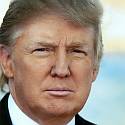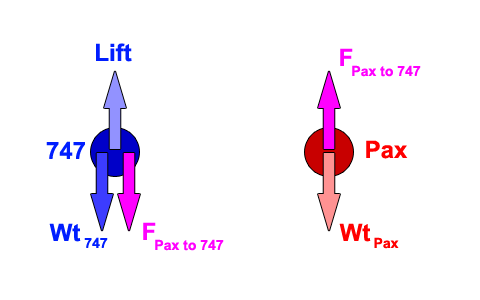Friday Trump & Politics Roundup - 18
 This is my semi-regular feature to post links to articles about Donald Trump along with excerpts from those articles. Trump has the potential to cause so much damage to our country and the world that it's every citizen's responsibility to keep pressure on him and our other elected officials to try to minimize the damage. To read previous entries in this series and other Trump related posts, check out my Trump archives.
This is my semi-regular feature to post links to articles about Donald Trump along with excerpts from those articles. Trump has the potential to cause so much damage to our country and the world that it's every citizen's responsibility to keep pressure on him and our other elected officials to try to minimize the damage. To read previous entries in this series and other Trump related posts, check out my Trump archives.
Obviously, there's a lot more news that I haven't included here. Bad news comes out of the Trump administration and Republican controlled House and Senate too fast for me to keep up with it all. (I wonder if that's a strategy - overwhelm the public with so much that people can't be outraged about everything.)
And damn, these posts are so freakin' depressing. If I just quit giving a damn about other people, I suppose I could ignore Trump and all the damage he's causing and just enjoy my own comfortable little bubble. But these are literally life and death stakes. His Mexico City policy is going to kill tens of thousands of people. The new Republican healthcare bill could kill tens of thousands per year more.
How in the hell did we get here as a nation where we've voted in such horrible politicians? The 4th of July is coming up in just a couple weeks, and I'm struggling with how to celebrate pride in America when I'm so disgusted and embarrassed with the current state of government. Setting off fireworks and waving flags seem hollow when an incompetent proto-fascist demagogue like Trump is leading the nation.
Helicopter Association International (HAI) today joined other national organizations in opposing privatization of the nation's air traffic control (ATC) system.These organizations signed a joint letter to President Donald Trump, expressing concerns that the plan would directly and significantly benefit the airline industry while destabilizing the current successful ATC system and raising costs through user fees that would be passed on to consumers.
"All stakeholders on both sides of this issue acknowledge that we already have the safest, most efficient air traffic control system in the world," said Matt Zuccaro, president and CEO of HAI. "So what problem are they trying to solve?"
"This initiative appears to be an effort by the airlines for more control of the airspace and the airports," continued Zuccaro. "As we all witness the airlines struggling with their own internal technology issues and related problems, does it really make sense to hand over control of the best ATC system in the world to them?"
Related: Joint Letter from 16 Aviation Associations Regarding Trump's Proposal to Privatize Air Traffic Control (the letter mentioned above)
Related: PR Newswire - Airline Passenger Group Says Airline Control Of FAA Not The Answer
[This was particularly shameful behavior from Trump. And baffling. How can you screw up foreign relations so badly with the U.K.? Who criticizes a mayor in the immediate aftermath of a terrorist attack?]
President Donald Trump's already controversial planned state visit to the United Kingdom has just become a whole lot more contentious. Multiple tweets attacking London mayor Sadiq Khan in the wake of Saturday's attack in London that left seven people dead have led several leading British politicians to call for Prime Minister Theresa May to cancel the invitation."Sadiq Khan has shown dignity and leadership," said Tim Farron, the leader of the Liberal Democrats. "Theresa May absolutely must withdraw the state visit. This is a man insulting our national values at a time of introspection and mourning."
Those comments were slammed by senior Labour member of Parliament David Lammy."You are truly beneath contempt," he said in a series of tweets in reply to Trump. "You are just a troll. Show some bottle please PM. Cancel the state visit and tell Trump where to get off.
"You demean your office by misquoting and smearing the Mayor of a city that has just been attacked and is also the capital of your close ally. You besmirch the presidency, you taint previous Presidents with your behavior & you bring shame on your great country and its great people."
Asked on CNBC's "Squawk Box" whether carbon emissions are primarily responsible for climate change, Perry said no, adding that "most likely the primary control knob is the ocean waters and this environment that we live in."Perry's view is contrary to mainstream climate science, including analyses by NASA and the National Oceanic and Atmospheric Administration. The EPA under President Donald Trump recently removed a web page that declared "carbon dioxide is the primary greenhouse gas that is contributing to recent climate change."
Nature Op-ed - Fight the silencing of gun research
In the half-century since the assassination of Martin Luther King, more civilians in the United States have been killed with guns than American soldiers have died in all US wars since the nation was founded in 1776. Currently, on an average day, about 300 Americans are shot and 100 die from gunshot wounds -- in murders, attempted suicides or accidents (see go.nature.com/2qnp4m2).
Yet the US government, at the behest of the gun lobby, limits the collection of data, prevents researchers from obtaining much of the data that are collected and severely restricts the funds available for research on guns. I have watched this first-hand, being one of a half-dozen or so gun researchers in the United States who has continuously published in this field over the past two decades.
Because of a two-decade stranglehold on US gun research, there are few, if any, scientific studies for people to refer to when promoting or countering proposed changes to gun control. Policymakers are essentially flying blind for what is currently classified as the third leading cause of US injury and death, after motor vehicles and opioids (see go.nature.com/2rpky2y).
Alarmingly, the gun lobby is increasingly aligning itself with a broad political movement that sees science not as a search for truth and understanding, but as a tool for promoting partisan agendas (see go.nature.com/2sderwh). The American Bar Association and many medical societies have spoken out on the firearm funding limitations imposed by Congress. Now all scientific associations need to add their voices.
Vox - World leaders tell jokes about Trump. But the implications aren't funny at all.
It's one thing when American late-night TV show hosts and online commenters make fun of President Donald Trump. It becomes something completely different -- and, frankly, alarming -- when world leaders mock the president.
But even though Turnbull thought his comments were off the record, he was still mocking the US president as a pompous clown in front of a room full of journalists and fellow politicians. When viewed in a wider context, that's more than a bit unnerving. This is an ally of the United States blatantly demonstrating that he doesn't take the president seriously.
"In the private conversations I've had with heads of states and ministers of foreign relations ... they all feel what Turnbull just basically came out and said: This is, by far, the least capable person ever to sit in the office and it's appalling they have to deal with him," said Ian Bremmer, president of Eurasia Group, a global risk-assessment firm. "Even in a country that really needs to have a good relationship with the United States, you're just not willing to deal with it. Your own ego will say, 'Screw this guy.' "
When more than 100 Iraqi Chaldean Christians in Michigan were arrested and threatened with immediate deportation the weekend of June 10th, the Trump administration's oft-repeated promises to protect Christians around the world rang not just darkly hollow but demonstrably false. After all, local activists argued, deporting Christians back to the war zones of Iraq was tantamount to a death sentence.
"Not only is it immoral to send people to a country where they are likely to be violently persecuted, it expressly violates United States and international law and treaties," Kary Moss, the executive director of the ACLU of Michigan told the Huffington Post soon after the arrests. "Our immigration policy shouldn't amount to a death sentence for anyone."
Vox - John Oliver: it's time for Trump to stop lying to coal miners
Oliver points out that the coal industry employs fewer people than JC Penny ("I didn't even know JC Penny had employees anymore!") but, to his credit, takes the suffering of coal communities seriously.In fact, he takes it so seriously that he dares to tell them the truth. Oliver does two things that are rare in mainstream media reports about coal. First, he cites research showing that competition from natural gas and renewables, not Obama regulations, is killing US coal.
Second, he makes clear that the interests of coal miners and coal executives often diverge -- that it's coal CEOs, not coal miners, that Trump is close to. In fact, coal executives are in the process of trying to screw over retired miners as we speak.
Related: Washington Post Fact Checker - Pruitt's claim that 'almost 50,000 jobs' have been gained in coal [Spoiler - It's a lie.]
NY Times Op-ed - Paul Krugman - Pure Class Warfare, With Extra Contempt
he Senate version of Trumpcare - the Better Care Reconciliation Act - is out. The substance is terrible: tens of millions of people will experience financial distress if this passes, and tens if not hundreds of thousands will die premature deaths, all for the sake of tax cuts for a handful of wealthy people. What's even more amazing is that Republicans are making almost no effort to justify this massive upward redistribution of income. They're doing it because they can, because they believe that the tribalism of their voters is strong enough that they will continue to support politicians who are ruining their lives.
This bill does nothing to reduce health care costs. It does nothing to improve the functioning of health insurance markets - in fact, it will send them into death spirals by reducing subsidies and eliminating the individual mandate. There is nothing at all in the bill that will make health care more affordable for those currently having trouble paying for it. And it will gradually squeeze Medicaid, eventually destroying any possibility of insurance for millions.Who benefits? It's all about the tax cuts, almost half of which will go to people with incomes over $1 million, the great bulk to people with incomes over 200K.
Related: Vox - The Better Care Reconciliation Act: the Senate bill to repeal and replace Obamacare, explained
Vox - The health bill might pass because Trump has launched the era of Nothing Matters politics
Since taking office, his signature values -- showmanship, shamelessness, and corruption -- have spread like kudzu in official Washington. It's now a country where Cabinet secretaries go on television to lie and claim that a $600 billion cut to Medicaid won't cause anyone to lose coverage. It's a country where the speaker of the House introduces an amendment to erode protections for patients with preexisting conditions and then immediately tweets that it's just been "VERIFIED" (by whom?) that the opposite is happening. Republican senators who a couple of months ago were criticizing the House bill's Medicaid cuts as too harsh are now warming up to a Senate bill whose cuts are even harsher.The watchwords of Trump-era politics are "LOL nothing matters." If you're in a jam, you just lie about it. If you're caught in an embarrassing situation, you create a new provocation and hope that people move on. Everything is founded, most of all, on the assumption that the basic tribal impulses of negative partisanship will keep everyone on their side, while knowing that gerrymandering means Republicans will win every toss-up election. If you happened to believe that Republicans in office would deliver on their health care promises, well, you might be interested in a degree from Trump University.

 The latest issue of Skeptic magazine had an article with a few things I disagree with. Skeptic recently shared the article in their eSkeptic section, so you can read it even if you aren't a member of the Skeptics Society. Here's the link:
The latest issue of Skeptic magazine had an article with a few things I disagree with. Skeptic recently shared the article in their eSkeptic section, so you can read it even if you aren't a member of the Skeptics Society. Here's the link: Not too long ago, I came across a question on Quora,
Not too long ago, I came across a question on Quora, 


 I recently came across the Quora question,
I recently came across the Quora question, 




